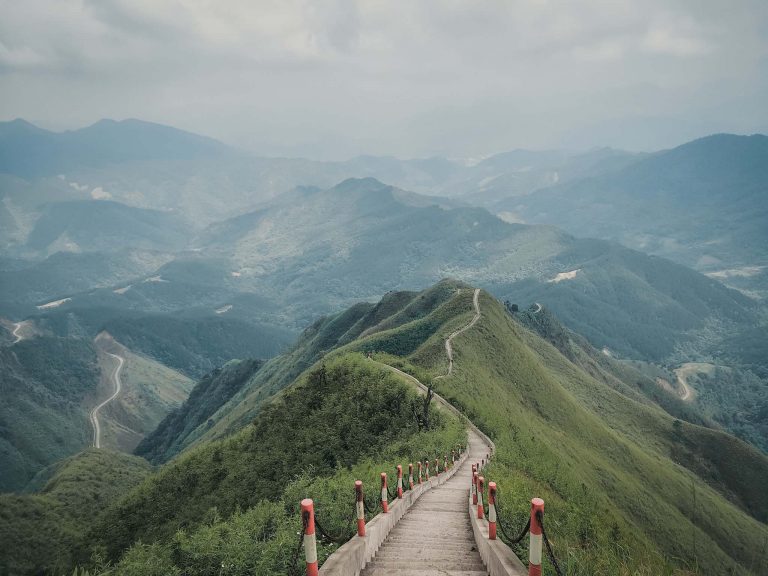
Around 240 kilometers from Hanoi, Binh Lieu District in Quang Ninh Province boasts majestic landscapes and a unique local culture.
Around 240 kilometers from Hanoi, Binh Lieu District in Quang Ninh Province boasts majestic landscapes and a unique local culture.
 |
| The moutain ranges in Binh Lieu- PHOTOS: NGUYEN KHAI TRUNG |
With its mountain ranges stretching to the horizon and terraced rice fields resembling flowing water, Binh Lieu never fails to enchant travelers. Its reed meadows and culture of the ethnic minorities further add to its charm.
As a bordering district, Binh Lieu has some 60 milestones along the border between Vietnam and China. Among them, milestone 1305 in Hoanh Mo Commune, Binh Lieu, is popular among travelers. To reach the milestone, situated on the highest point of Quang Ninh Province, visitors have to climb 2,000 stone steps. It is not easy and takes at least two hours to cover. But the breathtaking scenery and ample opportunities for photo sessions along the way make the journey easier.
However, what really makes it worth it, is the view from the highest point—cold breeze blowing above and a panoramic view of Binh Lieu below.
Binh Lieu also has beautiful cascades. The Khe Van Cascade in Huc Dong Commune and the Khe Tien Cascade in Dong Van Commune are natural masterpieces that tourists should not miss. They can enjoy the majestic sight of water flowing and the surrounding mountains or choose to swim in the crystal-clear lakes, which the cascades flow to.
Local specialties prepared by the ethnic people, such as stir-fried noodles, wild chicken, tam fish (Acipenser ruthenus) hotpot, to name but a few, appease the hungry after their long trips to the signature tourist spots in Binh Lieu.
Last but not least, the cultural festivals featuring colorful clothes and unique rituals hosted by the local ethnic groups offer travelers the chance to learn more about the local culture.
(Source:SGT)





